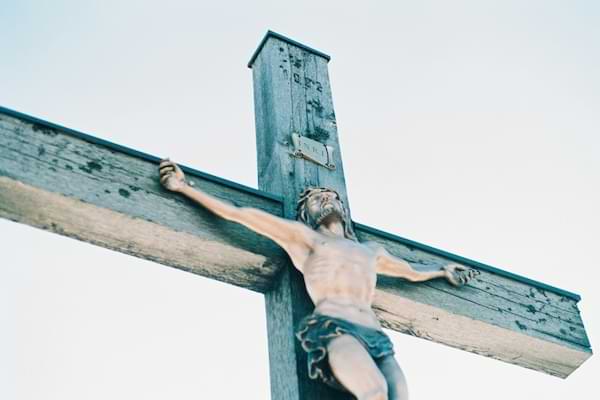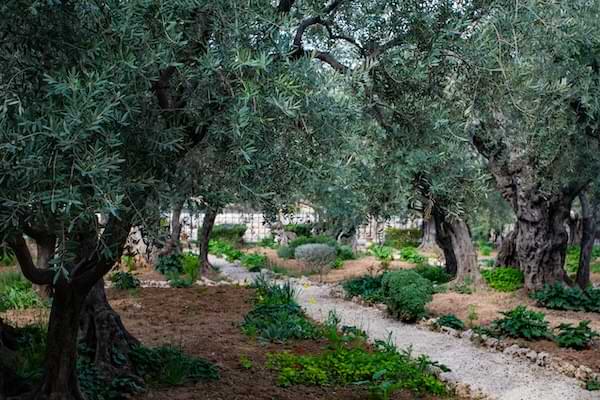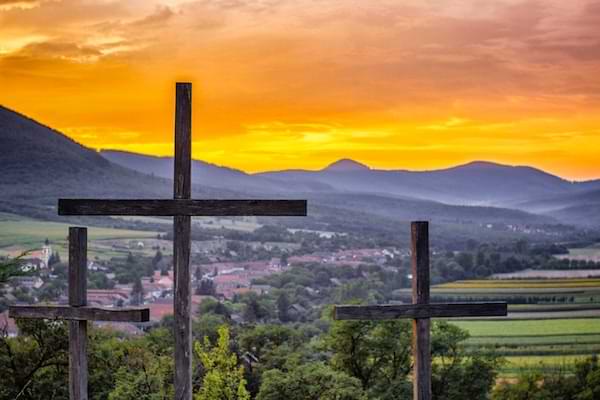Easter lessons from Jesus
For the next three weeks, I will focus this blog post on the important teaching of Jesus on the Mount of Olives. His words, found in Matthew 24–25, are called the Olivet Discourse. Jesus took the time on Tuesday of Passion Week to teach and comfort his disciples, who had grown very concerned over what they had seen and heard that day. Jesus knew Easter was coming, and he wanted his disciples to understand better all that would happen then and in the following years.
The beginning of Passion Week
Jesus entered Jerusalem on Palm Sunday to the excited cheers of the crowds. On Monday, Jesus and his disciples left Bethany, the home of Lazarus and his sisters, and walked two miles to Jerusalem. They passed a fig tree, and Jesus cursed it for not bearing fruit. When Jesus neared the city of Jerusalem, he wept because so many people there would never recognize the fact that their Messiah was in their midst (Luke 19:41–44).
After entering the city, he saw the temple courts and, for the second time in his ministry, cleansed the temple of the money changers who were immorally taking advantage of the pilgrims who had come to make a sacrifice at the temple. Jesus and his disciples returned to Bethany Monday night.
Holy Tuesday was a teaching Tuesday
Most consider Tuesday to be the day that solidified Jesus’ death sentence. He and his disciples woke up in Bethany that day and returned to Jerusalem. As they passed the fig tree Jesus had cursed the day before, they noticed it was dried up and decaying. Matthew 21:20–22 is the important lesson about prayer that Jesus taught them that day from the fig tree.
Jesus and his disciples were quickly met by a group of Pharisees and Sadducees who were expecting them. The Jewish leaders began to publicly question Jesus, hoping to expose him to the crowds of pilgrims who had come to Jerusalem for Passover.
The Jewish leaders asked Jesus who had given him the authority to say what he had been saying. Jesus answered them with a question of his own, saying, “I also will ask you one question, and if you tell me the answer, then I also will tell you by what authority I do these things. The baptism of John, from where did it come? From heaven or from man?” And they discussed it among themselves, saying, “If we say, ‘From heaven,’ he will say to us, ‘Why then did you not believe him?’ But if we say, ‘From man,’ we are afraid of the crowd, for they all hold that John was a prophet.” So they answered Jesus, “We do not know.” And he said to them, “Neither will I tell you by what authority I do these things” (Matthew 21:24–27). Jesus then told several parables that publicly exposed the wrong thinking of those Jewish leaders.
The Jewish leaders had been frustrated by the fact they couldn’t get Jesus to publicly condemn himself by speaking blasphemy. They reorganized and came at Jesus again, asking him about the resurrection, the greatest commandment, and their understanding of who the Messiah would be. Each confrontation further frustrated the Jewish leaders who were attempting to expose Jesus.
Finally, Jesus pronounced seven woes on the Jewish leaders, calling them “hypocrites, blind guides, whitewashed tombs, and a brood of vipers. His words against these popular and respected leaders condemned them as false teachers and fake politicians. Jesus exposed their teaching as hindering people from truly knowing God and recognizing their Messiah (Matthew 23).
The disciples would likely have been shocked and dismayed to hear Jesus, their teacher, speak this way to these men in such a public forum. Rightfully, they would have feared the retribution that was sure to follow. So, Jesus, understanding their concerns, led them outside the city’s walls and into the olive garden just outside.
As they passed through the gates of the temple, walking toward the Mount of Olives, Jesus pointed to the massive stones in the walls and said, “You see all these, do you not? Truly, I say to you, there will not be left here one stone upon another that will not be thrown down” (Matthew 24:1–2). Many of the stones weighed thousands of pounds. One stone that was uncovered is estimated to weigh as much as a 747 Jetliner. Jesus’ words to his disciples would have seemed unfathomable, unrealistic, and even untrue.
If we were in the crowds that day, what would we have thought about Jesus? These men had left everything behind to dedicate their lives to their rabbi, friend, and Messiah. His actions on Tuesday would have been shocking to them, as well as the crowds who didn’t know him well.
Time on the Mount of Olives
The disciples wanted to understand why Jesus was saying these unimaginable things. They asked Jesus, “Tell us, when will these things be, and what will be the sign of your coming and of the end of the age?” The disciples thought the fall of the walls of Jerusalem would mean that God was bringing about the end of the world. They wanted to know when that end would take place. It is still the question people most want to know.
Jesus told his disciples, then and today, “See that no one leads you astray. For many will come in my name, saying, ‘I am the Christ,’ and they will lead many astray. And you will hear of wars and rumors of wars. See that you are not alarmed, for this must take place, but the end is not yet. For nation will rise against nation, and kingdom against kingdom, and there will be famines and earthquakes in various places. All these are but the beginning of the birth pains” (Matthew 24:4–8).
The temple in Jerusalem fell in AD 70, just as Jesus told his disciples it would. This world has always had wars and rumors of wars. It experienced two World Wars, and many people understandably believed those days were the “end” of time. There have been famines and earthquakes, yet people are still roaming this planet.
Easter has been celebrated for many centuries now. Is it still the beginning of the birth pains?
An answer that has never satisfied
Jesus didn’t tell his disciples what they wanted to know. Instead, he told his first-century disciples and every disciple that they would follow what they needed to know.
Jesus said, “Then they will deliver you up to tribulation and put you to death, and you will be hated by all nations for my name’s sake. And then many will fall away and betray one another and hate one another. And many false prophets will arise and lead many astray. And because lawlessness will be increased, the love of many will grow cold. But the one who endures to the end will be saved. And this gospel of the kingdom will be proclaimed throughout the whole world as a testimony to all nations, and then the end will come” (Matthew 24:9–14).
When will we celebrate our last Easter? Only God knows. In the meantime, we must understand what those first-century disciples needed to hear.
Are you waiting, working, and willing to serve like Jesus taught?
- Have you fallen away? Betrayed your faith? Hated a fellow brother or sister in Christ?
- Have you followed false teaching and been led astray?
- Has your love for Jesus grown cold, apathetic, or stale?
If any of the above is true, Jesus told you what to do before you get ready to celebrate Easter. Commit to live an enduring faith in Jesus as your Lord and King. An enduring faith experiences the difficult times in this world with a faith that sustains the person until the difficult times fade or others come.
Share the gospel message, the good news about the kingdom of God, because the end will come when all those who God knows will belong in heaven have gone to heaven or belong to the group that Jesus will return for on that last, final day. One Easter Sunday will be the last.
Worship with the joy of knowing your hope is eternal and guaranteed by the truth of the resurrection. Live with an enduring faith in all that Easter has promised. It doesn’t matter when Jesus will return. It only matters that he has promised he will.
Enjoy the beauty of this day with the hope of your salvation and share the gospel of the kingdom. People deserve to know that the last Easter is coming.









